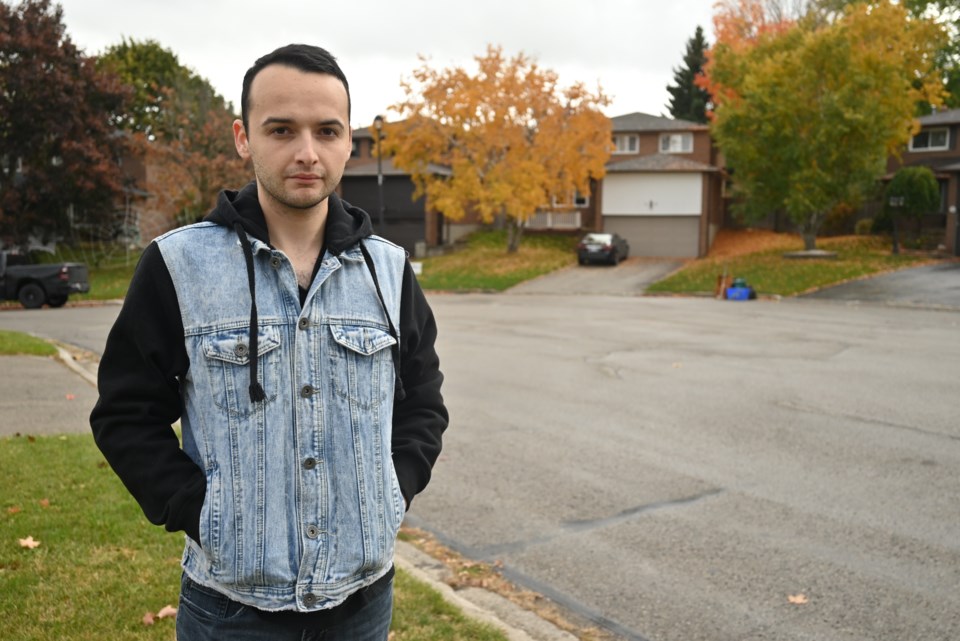Anthony Basciano has been struggling with his mental health for years.
The 23-year-old Newmarket resident was diagnosed with panic and anxiety disorders at age 14 and has lived with depression since then, he said.
But finding consistent treatment has been a struggle. After bouncing around between 10 different psychiatrists and constantly being assigned new ones, he is calling for systematic changes.
“I cannot legally drive due to my panic disorder. I cannot function properly in a workplace. I just feel like I need that help so I can do my day-to-day things,” he said. “Everything’s just very frustrating. I figure the mental health system would help me, and I feel like it’s failed me and a lot of other people.”
Mental health organizations have been pushing for more funding as they manage systematic challenges. Sixty-five national health associations wrote to the federal government this month to establish a Canadian Mental Health Transfer to address underfunding.
Basciano said he has been experiencing gaps in the system. Trying to find resources that have their costs largely covered, he described long waitlists and an inability to get something that will see him on a long-term ongoing basis. He said he can only get a covered session with a psychiatrist every year or so, and given that, he has struggled to work through finding medications that work well.
“I just need help, but I’m not getting the help I need.”
Canadian Mental Health Association York-South Simcoe CEO Rebecca Shields said their organization is doing what it can to ensure people can get the help they need.
But she acknowledged that access to care has been a persistent issue in mental health, even before the pandemic. The pandemic has only added to that demand.
“All of the demand on our services, whether it was mild to moderate to really supporting people with real and persistent mental illnesses, have increased,” she said. “We’re doing the best we can to meet people.”
Community-based mental health care has been impacted by the same strain seen in the rest of the health-care system, she said. Hospitals and health organizations have continued to report challenges and extended wait times due to staffing shortages and other pandemic-related pressures.
‘A lot of our staff, like everybody else, are doing the best they can with limited resources to try to keep up, and (they) can feel overwhelmed when we don’t have all the resources we need,” she said.
Part of the problem comes down to base funding. While she said governments have invested to create new programs to address gaps, she said several of their key programs have not had a funding increase to keep up with inflation since 2009 or 2010. With inflation up by about 17 per cent over that time, she said those programs are trying to meet the demands of a larger population with fewer resources.
“All of the mental health and addiction service providers need additional dollars in order to expand those evidence-based programs to ensure everybody gets the care they need when they need it.”
Although she said they have strived to provide walk-in access to the community, addressing more difficult mental health conditions, like services for bipolar disorder or schizophrenia, can result in waitlists.
Mental health advocacy organizations have been asking for help from all levels of government. After the federal Liberal government promised a new transfer to the provinces earmarked for mental health in the last election, the Canadian Alliance on Mental Health and Illness is pushing for that.
“For too long, those suffering have been unable to access publicly funded mental health and substance use health-care programs, services and supports. This must change”, CAMIMH co-chair Ellen Cohen said in an October news release. “There can be no health without mental health.”
There is some development on the horizon for Newmarket, Shields said, with the organization planning a new, Newmarket-based mental health and addictions hub, to be the first of its kind in York Region.
Meanwhile, Shields said they still are working with government partners on the funding problem. She said it is vital to fund mental health to hopefully prevent those suffering from ending up in acute care or emergency rooms.
“Early intervention is essential,” she said. “We need investment in community mental health resources to save the overall system.”
In what ways he can, Basciano said he wants to become a mental health advocate and fundraise for the cause.
After experiencing recent traumatic events, he said he does not want to wait idly anymore.
“I just feel like I can’t take being silent about it,” he said. “I’m just tired of waiting and waiting for help that doesn’t look like it’s coming.”



